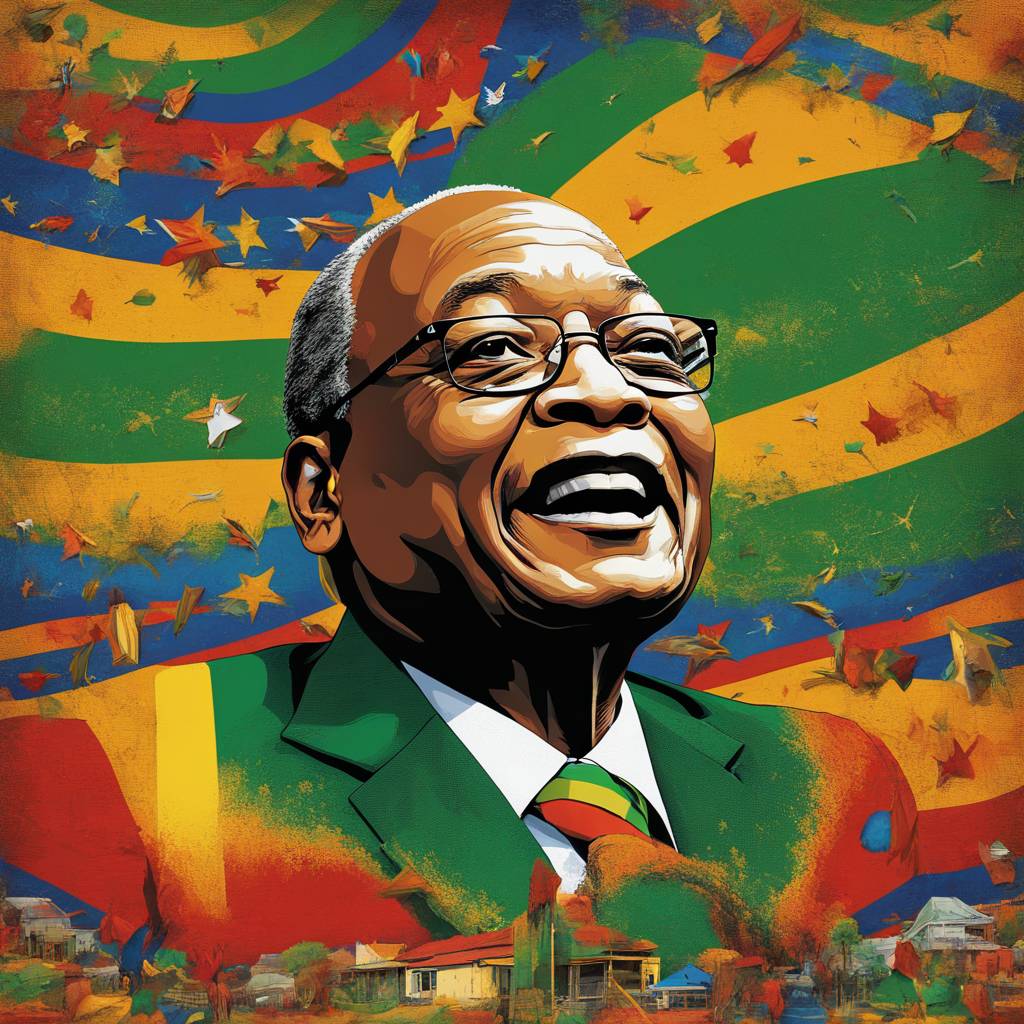The upcoming general elections in South Africa, scheduled for May 29, are expected to be the most competitive vote since the end of apartheid in 1994. Former President Jacob Zuma has been barred from standing in the elections by the electoral commission, effectively putting an end to his campaign for the newly formed uMkhonto WeSizwe (MK) party. The commission president confirmed that an objection against Zuma’s candidacy had been upheld, citing a constitutional provision that disqualifies individuals who have been convicted and sentenced to more than 12 months in prison from running in elections.
The decision to bar Zuma from the elections comes as the ruling African National Congress (ANC) faces the possibility of dropping below 50 percent of the vote for the first time since coming to power in 1994. The party has been losing support due to a weak economy and allegations of corruption and mismanagement. Recent polls show the ANC at just over 40 percent of the vote, with the main opposition Democratic Alliance at around 27 percent and the MK party at 13 percent. If the ANC falls below the 50 percent threshold, they will need to form a coalition to stay in office.
Zuma’s presidency ended in 2018 amidst corruption allegations, and he was later jailed for refusing to testify to a corruption probe. His imprisonment sparked protests, riots, and looting that resulted in over 350 deaths. Although he was released on medical parole two months into his sentence, an appeals court later ruled that his release was illegal and ordered him back to jail. Upon his return, he benefitted from a remission for non-violent offenders approved by incumbent President Cyril Ramaphosa. Despite facing corruption charges from his time as vice president, Zuma still holds political influence and has been campaigning for the MK party in an attempt to revive his career and weaken the ANC.
The electoral commission’s decision to bar Zuma from the elections can be appealed before April 2. An MK party spokesperson stated that they are considering the merit of the objection and plan to appeal it. The ANC, currently led by Ramaphosa, is facing a tough challenge in the upcoming elections as they struggle to retain their majority share of the vote. Zuma’s attempt to launch a political comeback with the MK party has added an additional layer of complexity to the already contentious election race.
As South Africa prepares for its most competitive elections in nearly three decades, the fate of the ruling ANC hangs in the balance. The decision to exclude Zuma from the elections has significant implications for the political landscape in the country, with potential repercussions for the composition of the next government. With the ANC facing the possibility of forming a coalition to retain power, the outcome of the elections will have far-reaching consequences for the future of South Africa and its political leadership.


